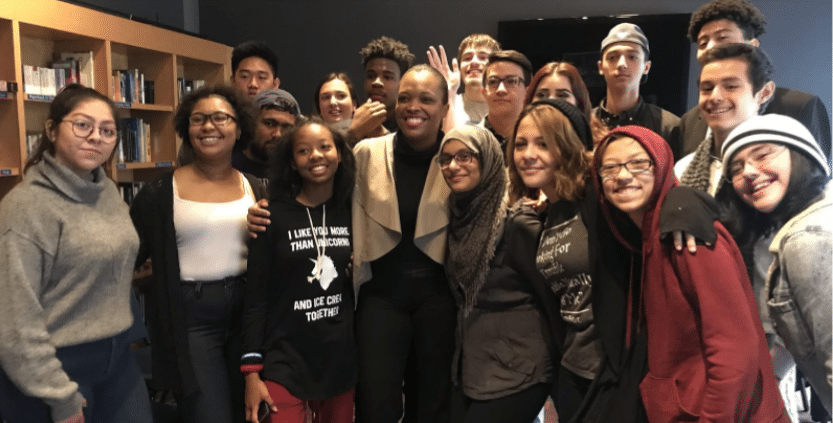 The CPS Student Advisory Council (SAC), a group of 21 Chicago Public School students from across the district who have work on issues that affect all young people in the CPS school system, spent the summer researching ways that students can have an input in the allocation of resources in their schools. After intensive analysis and research, the council curated a list of policy recommendations to present to Dr. Janice Jackson, Chief Education Officer at CPS.
The CPS Student Advisory Council (SAC), a group of 21 Chicago Public School students from across the district who have work on issues that affect all young people in the CPS school system, spent the summer researching ways that students can have an input in the allocation of resources in their schools. After intensive analysis and research, the council curated a list of policy recommendations to present to Dr. Janice Jackson, Chief Education Officer at CPS.
Collectively all groups agreed to support the council in their recommendations to create tools for students to understand how schools are budgeted and how money comes into their schools, and continue the process to add more student spots to Local School Councils (LSC).
In November, SAC met with Dr. Jackson to update her on all the work they have been doing since the 2017-18 school year started.
One of the main issues students addressed this summer was the amount of access they have when it comes to influencing where money goes in their schools. One of the only ways is to participate on their high school’s Local School Council. Each LSC is composed of the school’s principal, community members, parents, staff, and 1 student. Identifying that students hold the majority of population that makes up a school community, SAC took a deep dive into finding out what the process to expanding the number of student seats to 3, but after much research they found that out of 100 CPS high schools, only 42 of those schools have student representatives sitting on the council. SAC presented their findings to Dr. Jackson and permission to refocus their recommendation to promote awareness of the importance of LSCs and empowering students in the 58 schools with no student rep to take on that privilege and offer student voice in the decision making processes of their schools.
Over the past 4 months, SAC has worked on creating a workshop for the CPS Student Leadership Conference held at DePaul University, where over 200 student leaders who participate in their school’s Student Voice Committees. The workshop is an interactive simulation of how schools get budgeted. Students are given all the information and breakdowns of the ways money comes into their schools and then act as principals to try and allocate money equitably to fairly impact all the components of a productive school community. Far too often, students’ are not included in the decision making process on issues that affect them because they aren’t educated on how systems work. Through these workshops, to inspire students to take initiative to want to create actionable changes.
